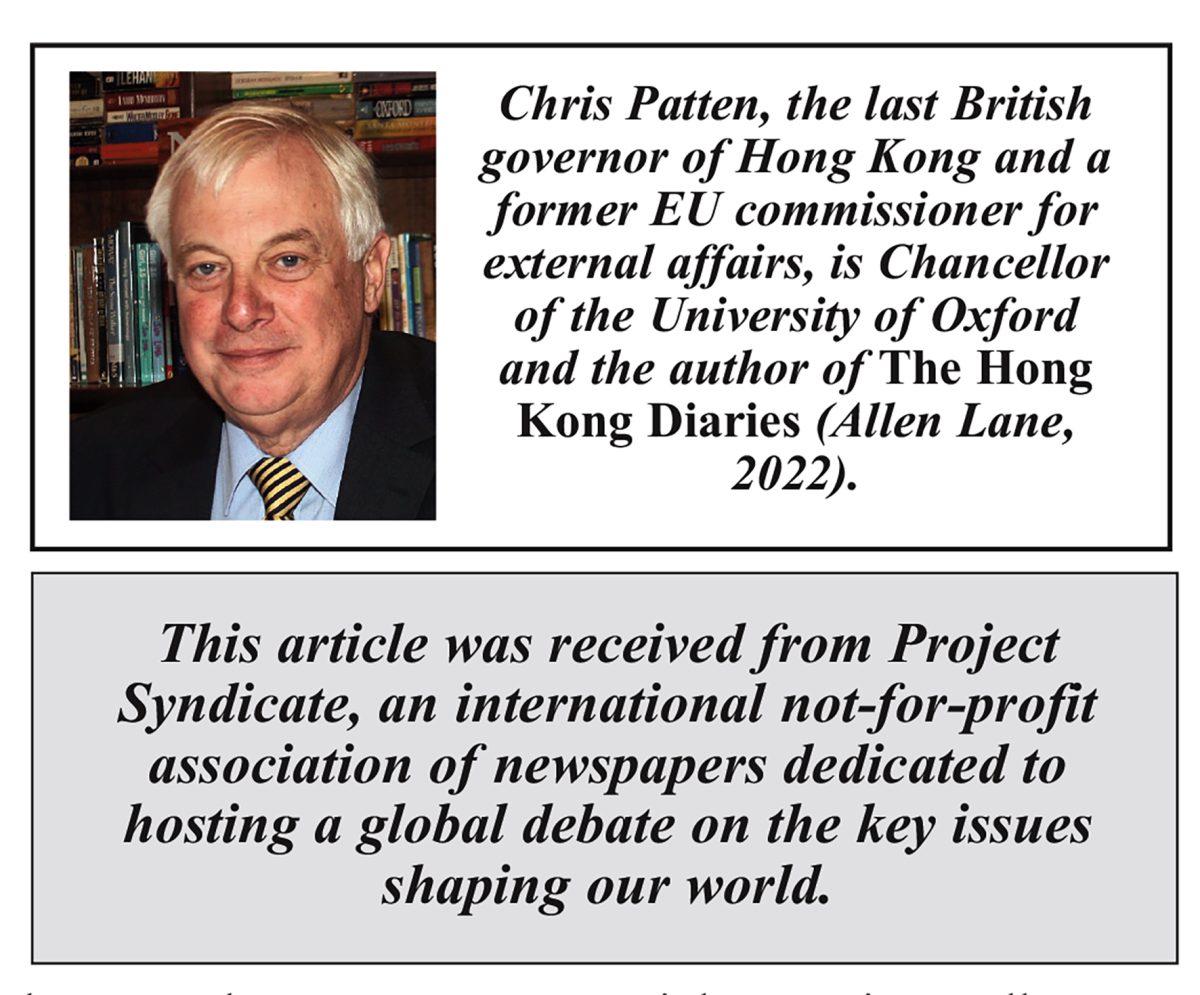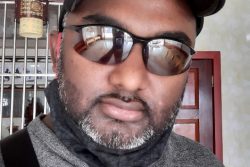LONDON – “I looked the man in the eye. I found him to be very straightforward and trustworthy,” US President George W. Bush said after meeting Russian President Vladimir Putin for the first time in 2001. That turned out to be a colossal misjudgment – perhaps one of the worst in recent history. While British Prime Minister Neville Chamberlain may have appeased Adolf Hitler in the late 1930s, at least he never claimed that he “was able to get a sense of his soul.”
My own first meeting with Putin left me with a distinctly different impression. It was 1999, and I was attending a European Union-Russia summit in my capacity as EU commissioner for external affairs. Russian President Boris Yeltsin had pulled out at the last moment, supposedly because he was too ill to travel (speculation abounded about a vodka-related malady). Yeltsin’s prime minister, Putin, would be taking his place.
While we were waiting for him to arrive, there were reports that Grozny, the capital of Russia’s rebel Chechnya province, had been hit by a series of explosions. When Putin – uncharismatic, slightly slippery, and hard-eyed – finally sat down at the table, we asked what had happened. With an innocent and slightly puzzled look, Putin said that he had no idea, but that he would find out and tell us at the lunch break.
During our morning talks, news came that the Russian military had bombed Grozny. But when we asked Putin about it again, he said with a straight face that an arms bazaar run by Chechen guerrillas had exploded. By then, Putin must have known that we had read the news reports. And yet he lied anyway. The same thing happened in subsequent meetings about the provision of humanitarian assistance to Chechnya: Putin again told stories that he knew we knew were untrue. Diplomacy is usually more subtle than this.
My other encounters with Putin – discussing, for example, Russia’s access to Kaliningrad Oblast after its surrounding countries joined the EU – only confirmed his blatant disregard for the truth. In fact, unlike Bush, I found Putin to be a singularly nasty piece of work. His subsequent political career, featuring brutal repression of domestic dissent and assassinations of Kremlin critics at home and abroad, has vindicated my initial impression.
Most commentators portray Putin as a ruthless spy, given his KGB background. But Italian-Swiss political scientist Giuliano da Empoli’s excellent debut novel, The Wizard of the Kremlin, presents a different picture. Da Empoli’s imagined life story of a Putin adviser – based on the real-life figure of Vladislav Surkov, formerly known as the Kremlin’s puppet master – suggests that the Russian president’s character is shaped more by counterespionage. Paranoid Putin doesn’t trust anyone and spends his time hunting for threats and conspiracies.
While the West has often misread Putin, the same cannot be said for Putin’s understanding of the West. Over the years, he has clearly perceived that his imperialist ambitions will not meet much resistance from liberal democracies. Putin’s regime launched a cyber-assault on Estonia in 2007; attacked Georgia in 2008 and effectively partitioned the country by recognizing the independence of two breakaway regions; and helped prop up President Bashar al-Assad’s government during the Syrian civil war, even after it had used chemical weapons. Not long after, in 2014, Russia invaded and annexed Crimea.
Confident that he could act with impunity, Putin’s decision to launch a war of aggression against Ukraine in 2022 – a clear violation of the United Nations Charter – should not have been surprising. From Putin’s perspective, Ukraine had always been a part of Russia, and therefore the invasion was a “special military operation,” not a full-scale war. Given the relative ease with which Kremlin-backed separatists seized territory in eastern Ukraine’s Donbas region in 2014, he obviously expected a swift victory once Russian tanks started rolling toward Kyiv. But Ukrainians, led by President Volodymyr Zelensky, mounted stiff resistance and rebuffed the stronger Russian forces.
More than two years on, the Russians have bombarded Ukraine’s cities, reducing some to rubble; raped, tortured, and murdered civilians; and abducted thousands of children. As fighting continues, Russia’s vastly superior firepower – bolstered by supplies from China, Iran, and North Korea – has begun to show, even though the Ukrainians have held on tenaciously.
In order for Ukraine to continue to defend itself – and have a chance of winning the war – the United States and Europe must provide more weapons and support, including air cover. Crucially, they ought not to forget that Ukraine is fighting for shared Western values.
After a prolonged congressional battle, US policymakers recently agreed to resume supplying ammunition, drones, rockets, and other military aid to Ukraine. The months-long delay can be attributed to a group of Republican Representatives who effectively form a pro-Russian lobby in the US Congress and have arguably done more than Putin’s generals to help the Kremlin’s war effort.
European countries have urged the US to deliver more assistance, but many of them have failed to match their words with adequate action. Indeed, ever since John F. Kennedy’s presidency, the US has called on NATO’s European members to contribute more to their own defense. But even now, fewer than half meet the long-standing defense-spending target of 2% of GDP. In some countries, the share of the budget consumed by pensions leaves so little for military spending that the army is little more than a well-protected pension fund.
The fact that the US has sprung into action after approving nearly $61 billion in military aid for Ukraine is an encouraging development. But the real question is whether the aid will continue to flow uninterrupted. One must hope that Ukraine will no longer have to beg for assistance – not least because a Russian victory would augur a collapse in confidence in the West’s willingness to defend its purported values. The world is watching.
Copyright: Project Syndicate, 2024.







